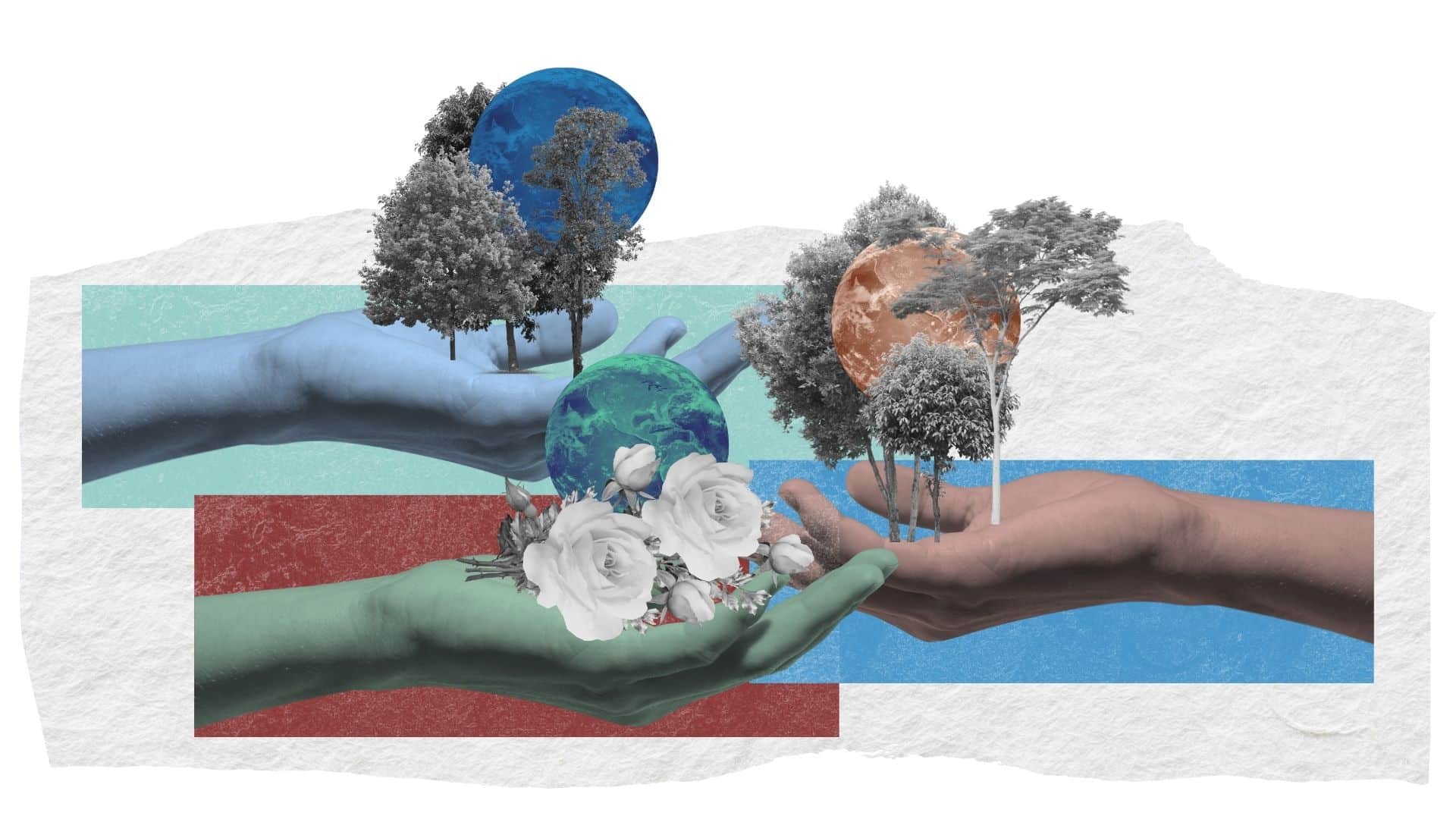“God’s earth has been turned into a den of thieves”: 3 truths I learned at COP29, the United Nations’ climate summit
Isabel Loh // December 17, 2024, 12:29 pm
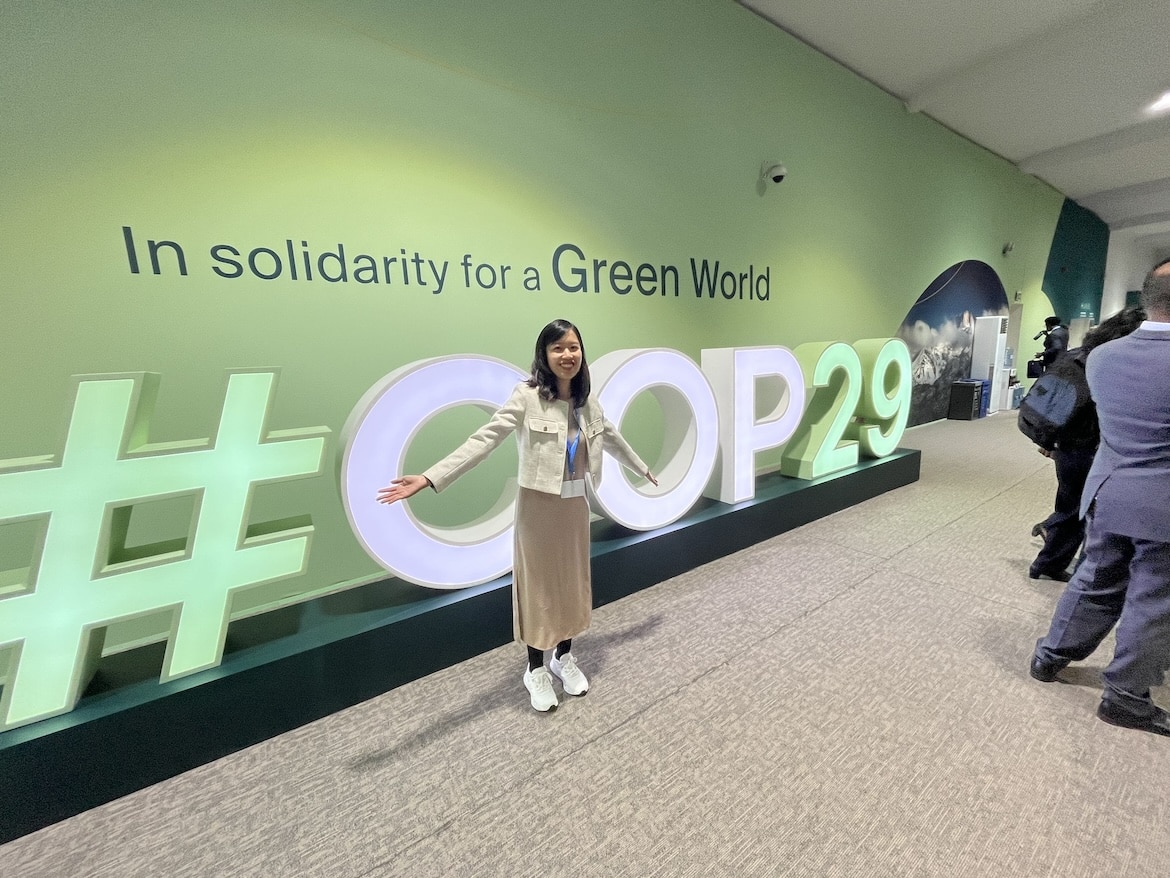
Isabel Loh, a sustainability consultant, attended the United Nations' climate summit COP29 in November, and brought home her observations and proposals for Christians to do what's right for the earth. All photos courtesy of Isabel Loh.
I was privileged to attend the first week of the United Nations’ climate summit Conference of Parties (COP) 29 in Baku, Azerbaijan as an observer, under the Christian Climate Observers Program (CCOP).
CCOP’s purpose is “to train, including with a Christian perspective, a new generation of Observers for the Paris Process so that the Church may make the most effective contribution possible to all subsequent COPs.”
This is a joint immersive discipleship programme for climate change professionals and creation care advocates, supported by more than 10 Christian organisations.
Key outcomes of COP29 include adopting a USD300 billion annual global finance target to help poorer nations cope with climate change impacts by 2035, as well as the finalisation of international carbon market rules.
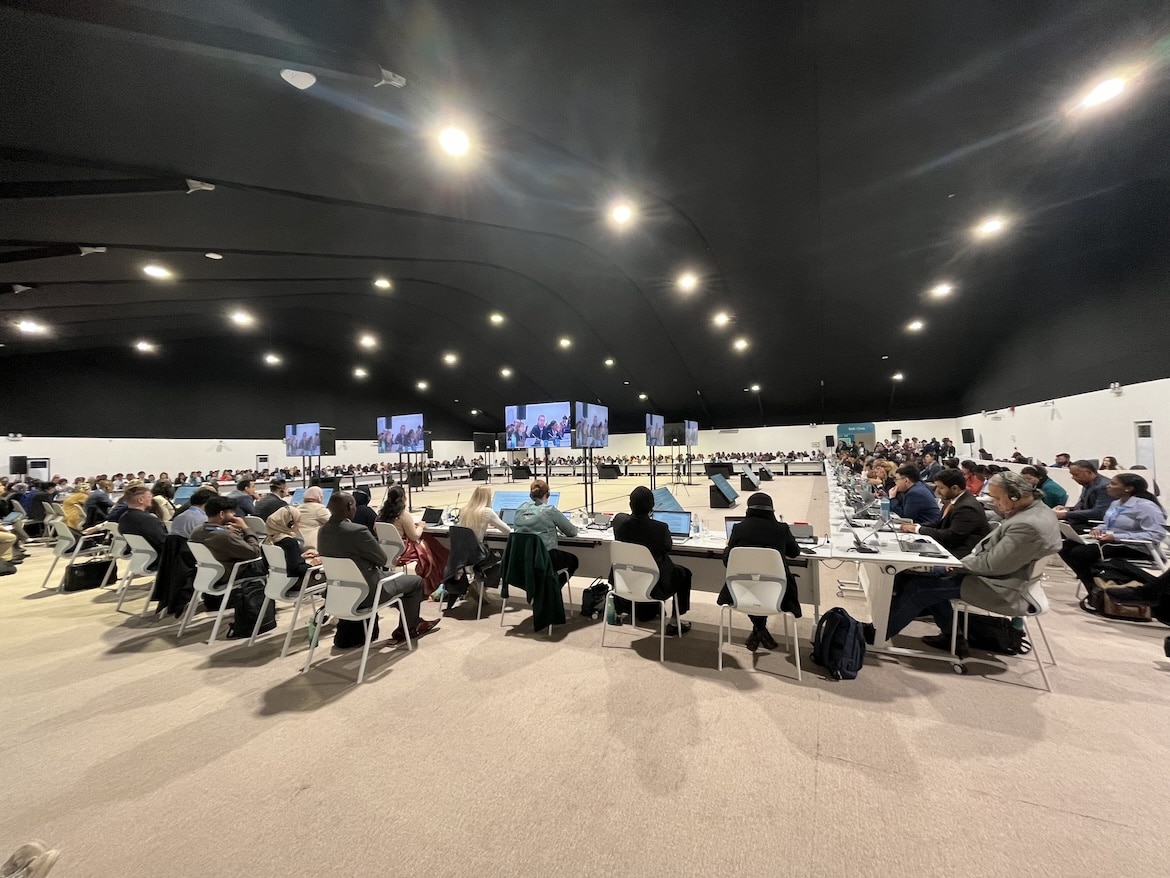
Negotiations underway at the UN’s climate summit, Conference of Parties 29.
Climate finance is needed for developing countries to meet the Paris Agreement goal of limiting global temperature rise to 1.5°C above pre-industrial levels – beyond which scientists predict catastrophic climate impact.
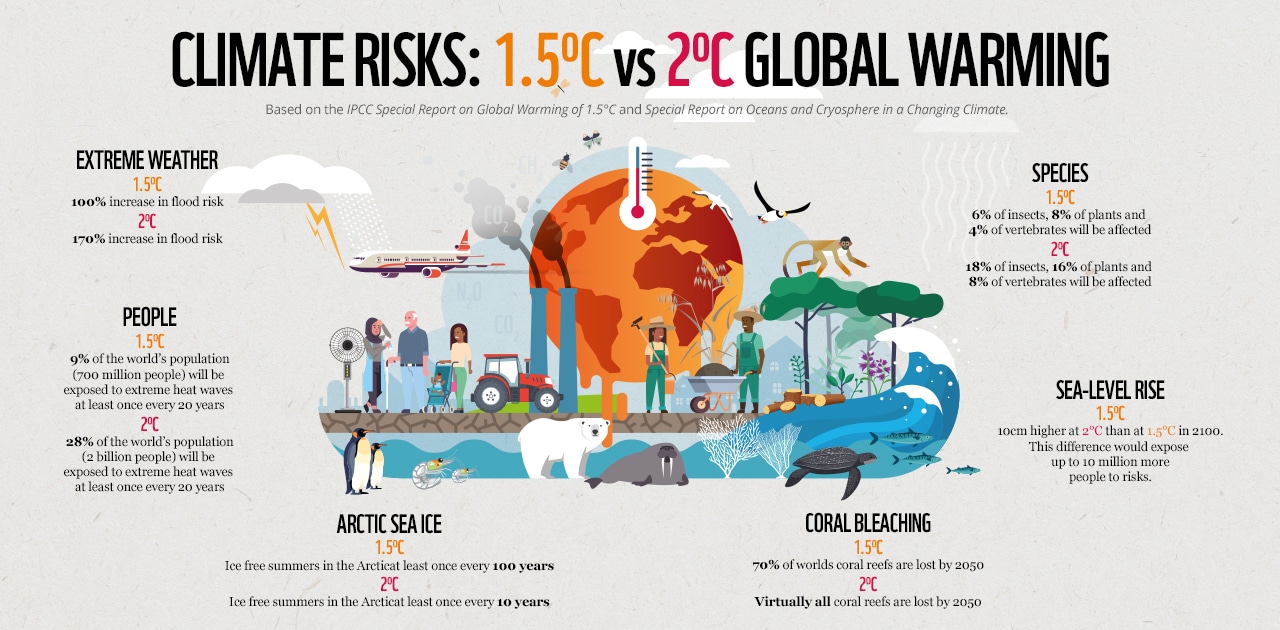
Global warming is a serious threat to the existence of life on earth.
It was a deep learning experience for me to witness the UN negotiation process, participate in advocacy actions organised by civil society and hear the stories of fellow Christians in this sector.
Here are some of the lessons I took home with me.
Why should Christians care about COP?
Such international discussions on climate change like COP can seem far removed from our daily lives. However, the outcomes from these discussions bear consequence for us, our neighbours and our future generations.
1. A matter of ownership: Creation belongs to God
The CCOP began with devotion each morning. At one such devotion, we were led to reflect on Jesus’s words in Mark 1:17: “‘My Temple will be called a house of prayer for all nations,’ but you have turned it into a den of thieves.”
All of creation is God’s temple, singing His praise. Yet, this beautiful house of God has been marred by mankind’s sin and brokenness since Genesis 3. One leader gave this analogy: Biodiversity loss is like ripping out a page of God’s hymnbook every time a species goes extinct.
How then has God’s earth been turned into a den of thieves? Our South African brothers had much to share.
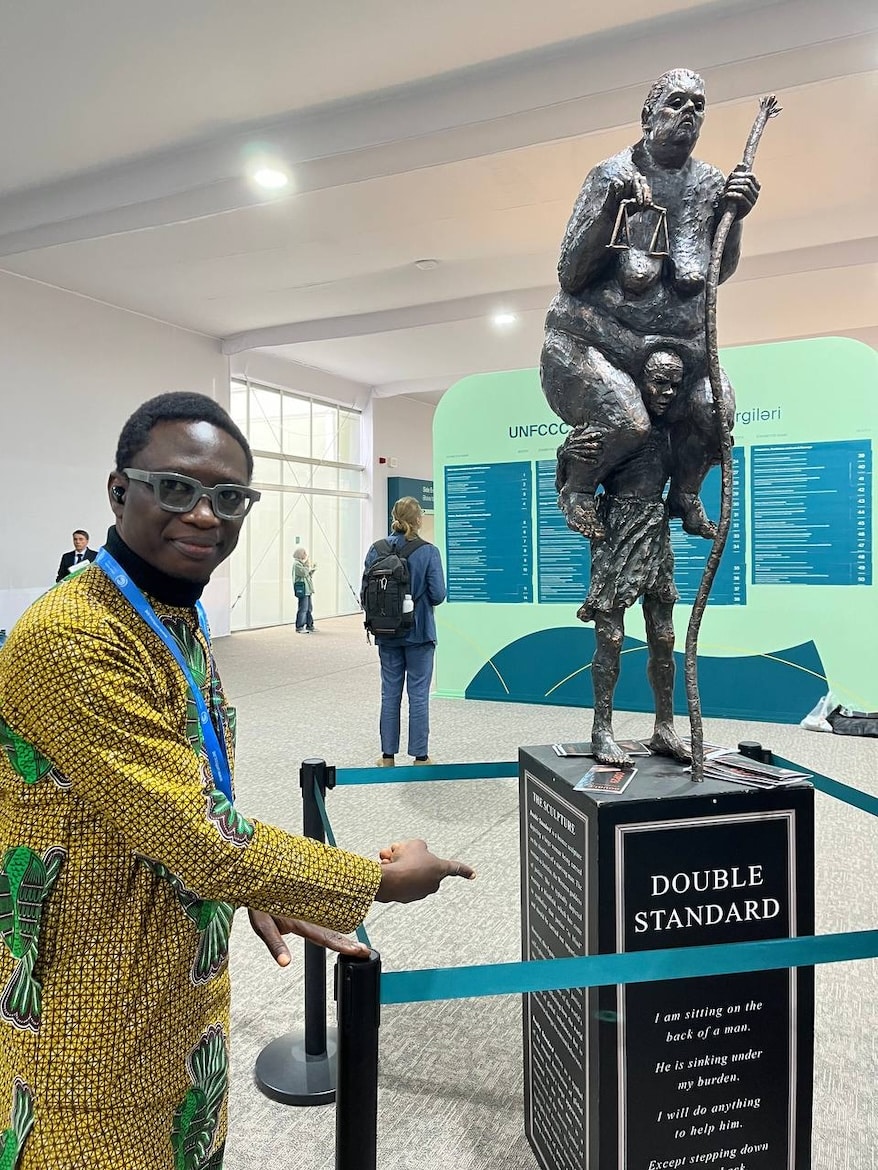
The Global South suffers the greatest consequences of climate change, while the power and money remain in the hands of the Global North.
Reverend Michael Kalito from Zambia spoke of how copper mining is a main economic driver for his country. Yet, tax concessions given to global north mining companies allow them to extract and pollute the land, keep the profits, and leave local children suffering deformities from drinking water contaminated with sulphuric acid from the mines.
Olushola Fadairo, a university lecturer from Nigeria, shared that Africa contributes less than 4% of global emissions, yet suffers the brunt of the impact of climate change. Climate finance, a key topic of discussion at COP29, for adaptation and loss and damage needs to be given through grants, not loans, he said.
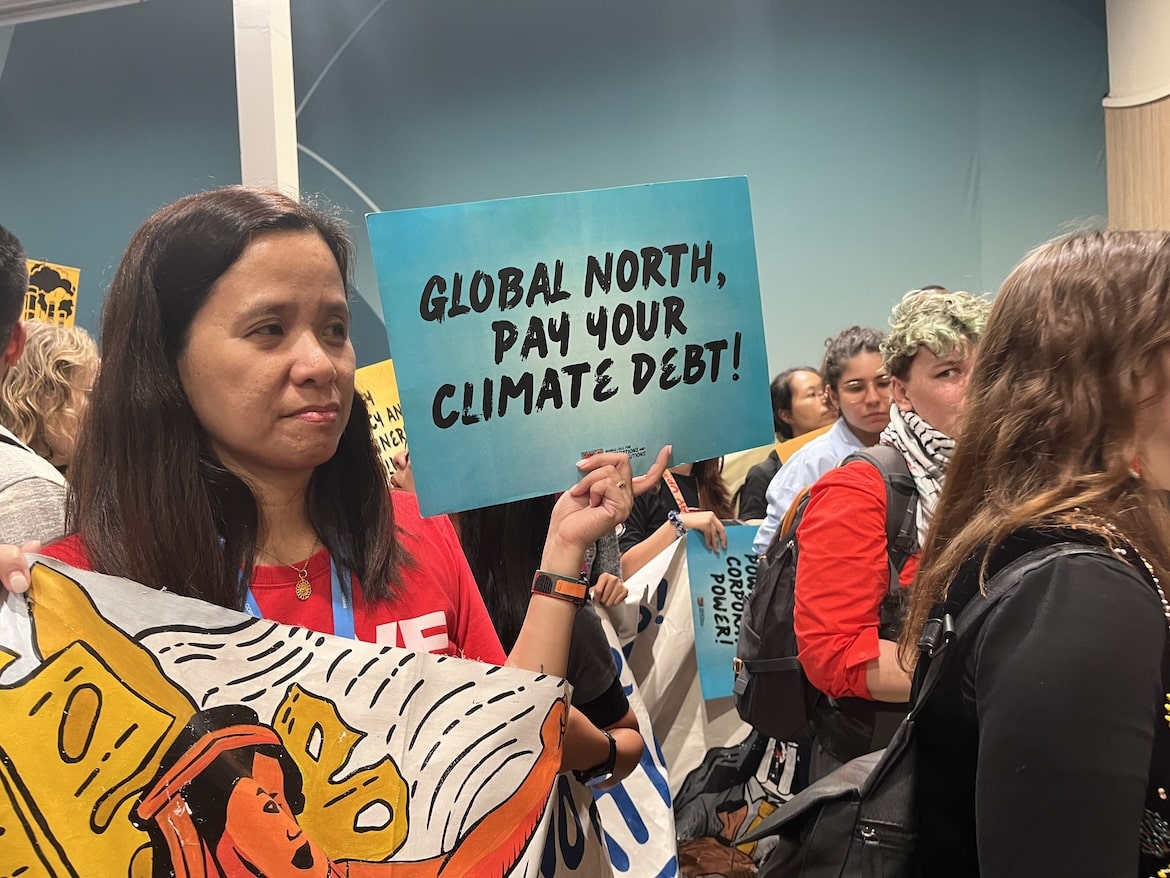
No chanting allowed, but protesters made themselves “heard” loud and clear.
These grants should also be transparent and accessible to Global South countries, but they currently often come with strings attached. For instance, out of a US$1 million grant, only 10% is given to beneficiaries and 20% used for staff payment, with 70% going back to developed countries because of the requirement that consultants from the Global North (developed countries) must be engaged.
2. A matter of justice: Climate change impacts the least, the last and the lost, the most
Climate change is a threat multiplier, and disproportionately impacts the ones who have done the least to contribute to this global problem:
- 80% of the people displaced by climate change are women and girls facing heightened risks of poverty, violence or unintended pregnancies as they migrate to safety;
- Children and future generations face greater exposure to diseases, higher risks of air pollution, malnutrition and vulnerability to extreme weather events;
- Only 10% of the world’s greenhouse gases are emitted by the 74 lowest income countries, yet the poor face greater risks in health, hunger, water security, education, and work-related hazards;
- Indigenous people inhabit more than 50% of the world’s land and are custodians of precious ecosystems, yet climate change is displacing them at 7 times the rate of the global population.
3. A matter of life: Bringing God’s Kingdom into the world
Some Christians may feel that since Jesus is coming again and the “earth will be burned up” (2 Peter 3:10), therefore they need not care too much about the climate crisis.
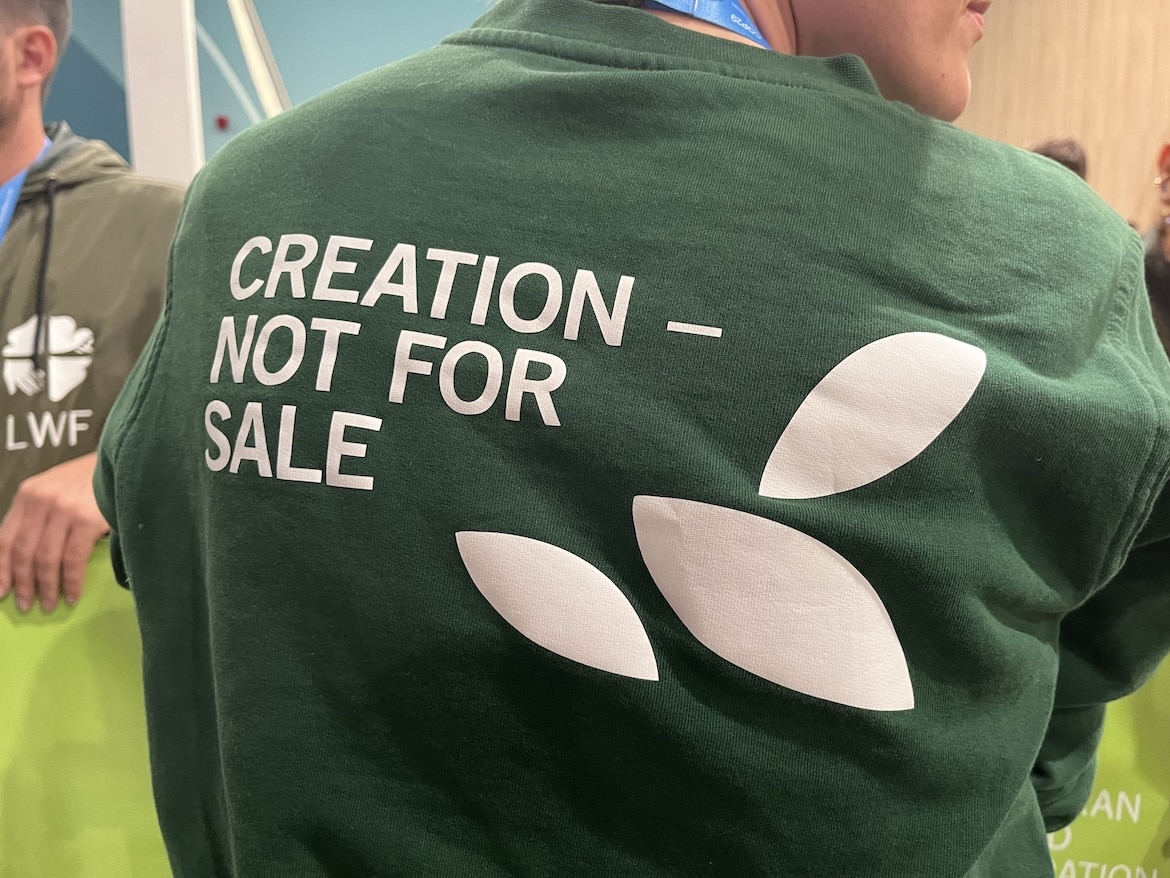
We care for our physical bodies though it will one day perish, since our body is a temple of the Holy Spirit and we are not our own (1 Corinthian 6:19).
Why not, then, care for our physical world which belongs to God (Psalm 24:1) and which we are called to steward (Genesis 2:15), no matter its final outcome?
The kingdom of God is here and not yet (Luke 17:20-21). While we wait for Christ to come again, we can all do our part to contribute to the flourishing of life and peace here on earth.
Be angry but do not sin
Civil society has an important role to play in the COP process.
Climate marches were a traditional component of COP but have been banned since COP27 when COP was hosted in quick succession by petrostates: Egypt, Dubai, and this year, Azerbaijan.
This year, civil society organised a protest behind closed doors, far away from negotiating rooms. Only hums and finger snaps were allowed outside the hall.
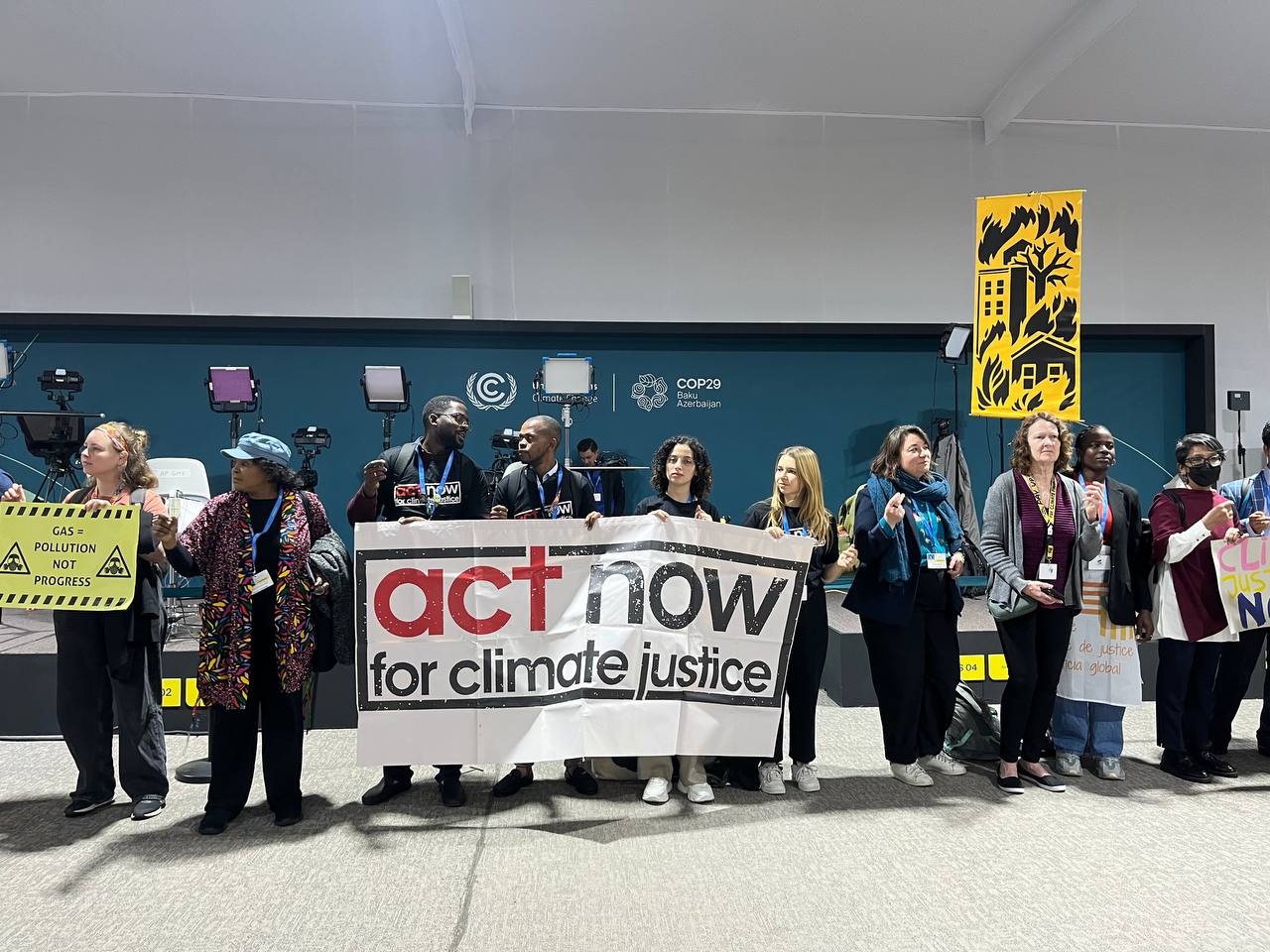
Yet, it was a silence that spoke volumes.
Growing up in an Asian conservative society, I am – and I suspect as are most Asian Christians – uncomfortable with anger. I associate anger with impulsiveness and sin when reading verses like Ephesians 4:26-27, James 1:19 and Psalm 37:8.
Yet, I recognise these have to be balanced with verses like Psalm 4:4, which show us that we can be angry and not sin – when we contemplate and bring our anger before God.
The CCOP leader reminded us that Yahweh and the prophets felt anger at injustice, idolatry, and violence.
Anger in the face of injustice is right and good, given the dignity and sacredness of human life, made in the image of God (Genesis 1:26).
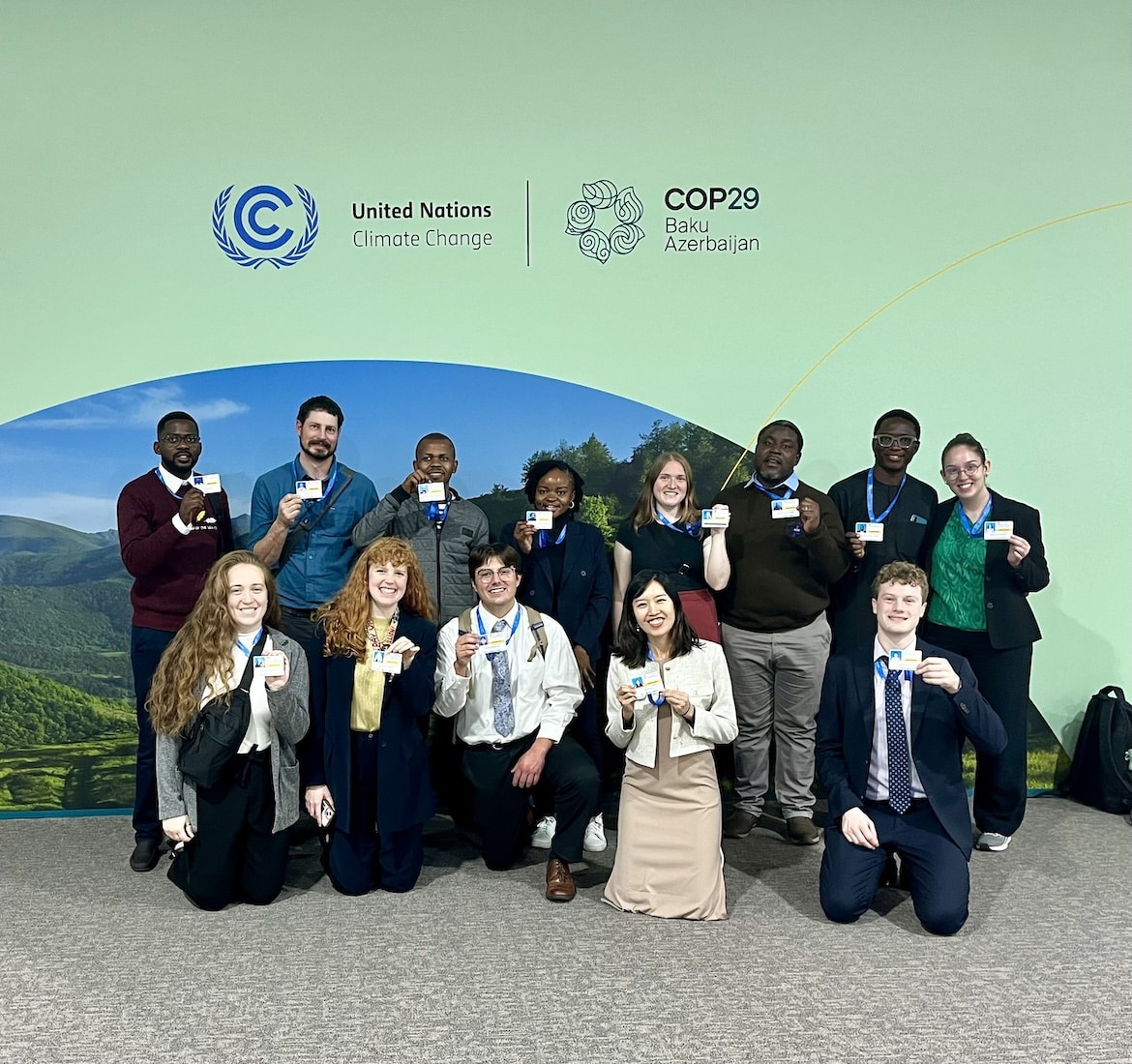
Isabel (front row, second from right) with CCOP participants showing off their badges that allowed them access to the goings-on at COP29.
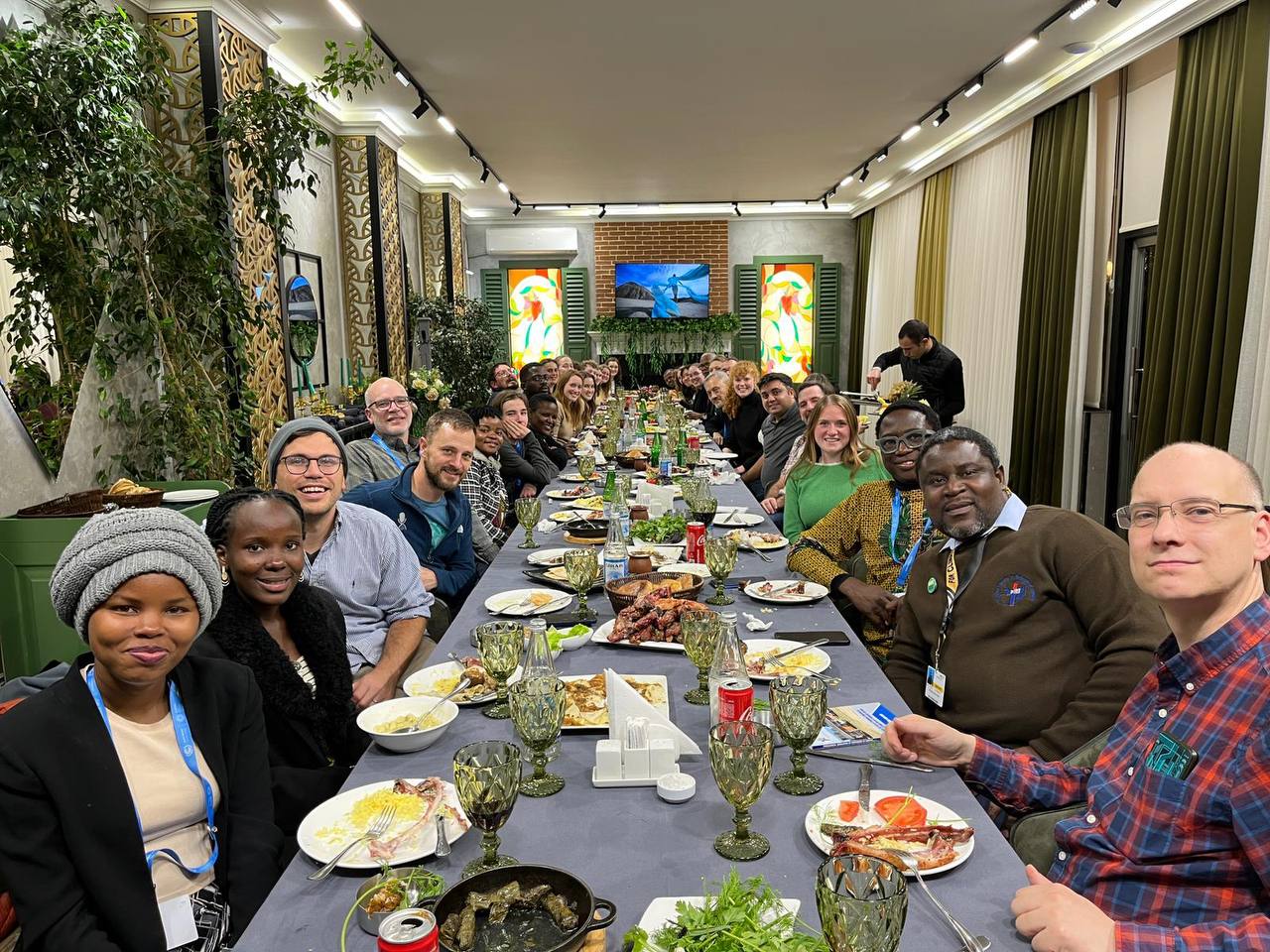
The CCOP participants at dinner.
What can Christians do?
The latest UNEP Emissions Gap Report highlights that we are in a climate emergency, with current policies resulting in 2.6 to 3.1°C of warming by year 2100. The window to act is closing fast.
1. We grieve and lament
In a 2021 survey of 10,000 youths across 10 countries, 75% of respondents affirmed that “the future is frightening”; 40% hesitate to have children due to the climate crisis.
As a sustainability professional, I too, have days where I feel overwhelmed.
Eco-anxiety is a normal response, as we grieve the loss of biodiversity, ecosystems, lives and livelihoods. This is not right. Things should not be this way.
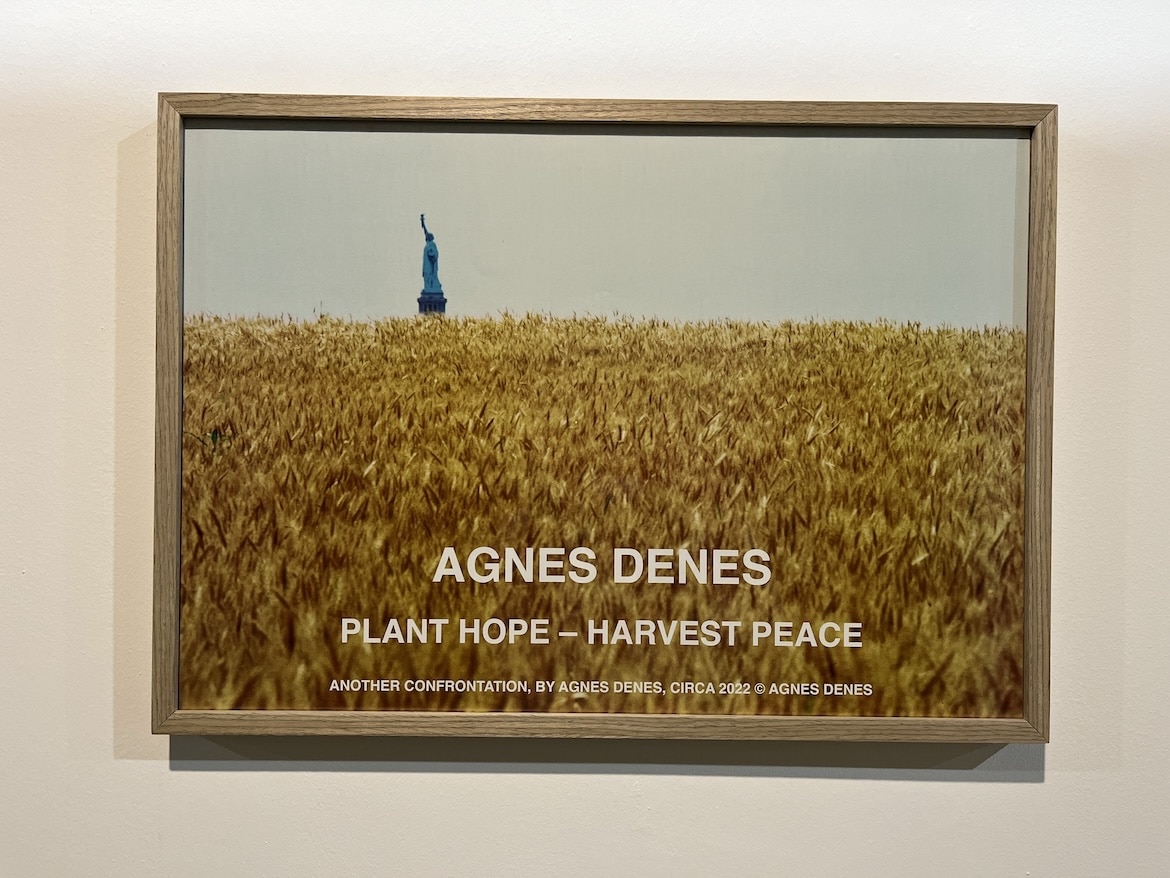
A protest artwork by conceptual artist Agnes Denes.
Gus Speth, the former dean of the School of Forestry and Environmental Studies at Yale, said: “I used to think the top environmental problems were biodiversity loss, ecosystem collapse, and climate change. But I was wrong. The top environmental problems are selfishness, greed, and apathy…to deal with those issues we need a spiritual and cultural transformation – and we scientists do not know how to do that.”
As Speth points out, the root of the environmental problem is spiritual, and the solution is spiritual too.
As a Church, we need to lament, and repent over the ecological destruction we have caused. True repentance should lead to action, inspired by our love for God and neighbour.
2. We act with courage
Tearfund’s 2020 report “Burning down the House” asks: “When the world looks back at the church in 200 years’ time, will they think the church helped to stop climate change or were part of the problem?”
Here’s some suggestions for what we can do as a Church:
- Learn more about creation care.
- Engage your community on climate change. As Christian climate scientist Dr Katharine Hayhoe says, talk about it!
- Examine your lifestyle and church operations, find ways to reduce your carbon footprint.
- Learn more about God’s world – we can’t care for what we don’t know. Our Father’s World conducts monthly nature walks.
- Creation care is not just for “green” Christians, it is a biblical mandate for all Christians, across all generations and all nations.
3. We pray with hope
While others rely on technological fixes, international policies, and market solutions, Christians can point others towards a more sure and solid hope that found in Christ.
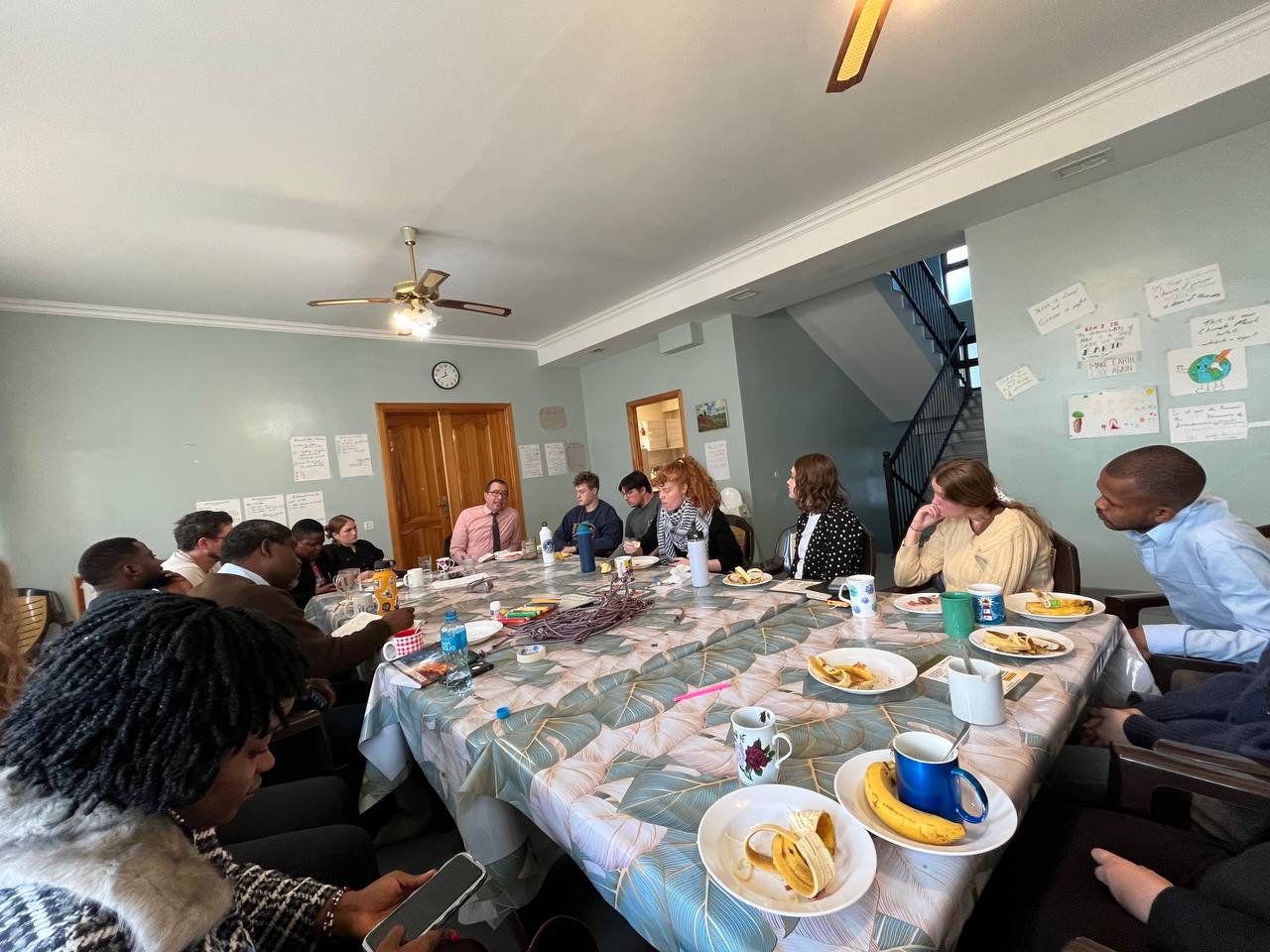
CCOP began its mornings with a time of devotion.
The Bible promises that Christ is coming again to make all things new (Revelations 21:5), to reconcile all things – all creation – to Himself (Colossians 1:15-20).
We can partner with God to bring about His shalom peace, wherever He has placed us, whether at COP29, in our home, marketplace or ministry.
As Romans 15:13 says, “May the God of hope fill us with all joy and peace as we trust in him, so that we may overflow with hope by the power of the Holy Spirit.“
As Christians, let’s pray for:
- Increased climate finance: As we look to COP30 in Brazil, let’s pray that all stakeholders will work together to creatively scale up finance for developing countries to USD1.3 trillion needed per year by 2035, in grants rather than loans. There is enough money, let’s pray for greater political will.
- Enhanced scope and ambition for countries’ climate targets, or nationally determined contributions (NDCs), which are due in February 2025.
- Full, fast and fair phasing out of fossil fuels across all sectors.
- Reform of COP process such that it is able to deliver bold, decisive action needed at speed and scale, “essential to ensure a safe climate landing for humanity”.
- For the Body of Christ to love our global and future neighbours by taking climate action
- That all stakeholders – governments, businesses, and NGOs – will act with urgency in the face of the climate and biodiversity crises
RELATED STORIES:
Creation matters “because it’s the handiwork of God”: Conservationist Peter Harris
The Bible doesn’t talk about global warming and recycling, so what should we do?
We are an independent, non-profit organisation that relies on the generosity of our readers, such as yourself, to continue serving the kingdom. Every dollar donated goes directly back into our editorial coverage.
Would you consider partnering with us in our kingdom work by supporting us financially, either as a one-off donation, or a recurring pledge?
Support Salt&Light
